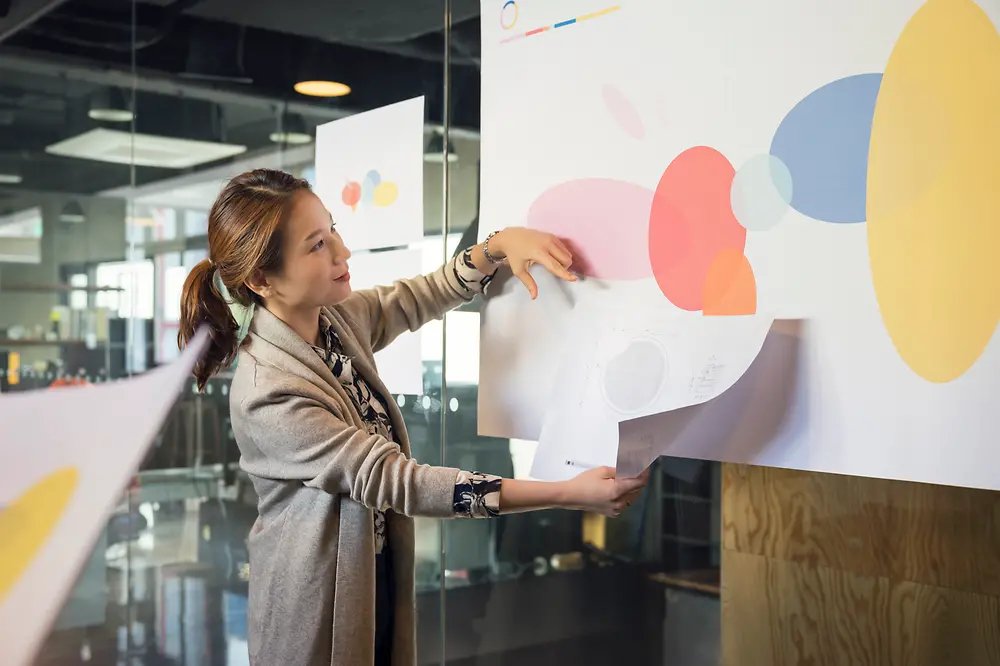Based on flexibility, transparency and continuous learning, agile methods prove to be an effective strategy to keep up with the constantly changing demands and needs of work life. The key to agile processes is working in short time intervals. By defining specific steps and achieving them within a fixed time period, the results and findings achieved can be integrated directly into the planning of the following steps – the so-called iterations. This could prove to be a more effective approach in the long run, especially in comparison to working in long interval periods, as it directly highlights if a strategy is in need of refinement.
Moreover, structured communication processes, such as regular meetings and constructive feedback loops, aid in developing a steady and dynamic exchange within a team. As a result, agile practices create an open, trusting environment and therefore encourage feelings of psychological safety in a team. Openly discussing progress, ideas, or difficulties, and recognizing mistakes as part of the process generally lead to more innovation and willingness to take risks. Overall, these methods can contribute to a positive working atmosphere and an increase in the general happiness of a team.
Thus, agile methods, and their integration, are a vital element in our culture of innovation at Henkel. Employees have the opportunity to work with agile coaches, who help with team building and resilience. In addition to this, employees also have access to a variety of tools and information via internal networks. Here, they can engage in virtual conversations with colleagues and exchange different experiences. One of our experts in this field is Julia Kalder, Manager Agile Organizational Development at Henkel. She offers valuable insights regarding how one can successfully implement agility within a team and general everyday work.











